Student Health Organizations in UI: Moving Trains or Rusty Bicycles?
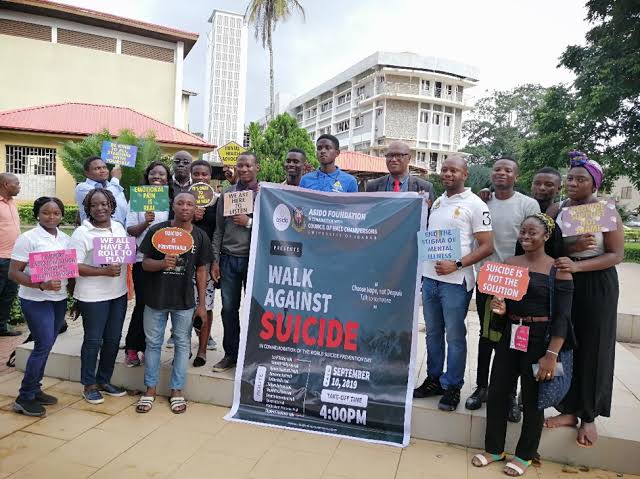
One of the first things you will notice as a resident of the University of Ibadan is that extracurricular and community service activities buzz unceasingly with students at the helm of affairs. Among the numerous existing student organisations, health organisations – human health, to be specific – stand out because they have a huge impact on the health and well-being of the university community, thus helping the University Health Services (UHS), otherwise known as JAJA Clinic, to promote good health and well-being. They also provide excellent opportunities for students to volunteer, contribute to community building, gain practical experience, and develop leadership skills. Nearly all of these health organisations tackle specific health issues, with activities ranging from awareness campaigns to going for outreaches, organising webinars and workshops, making donations, and rendering free basic health services. Although some other organisations are involved in such health-related activities, this article is exclusive to health-centred ones.
Furthermore, the organisation must be non-profit, open to membership for any university student, and predominantly led by and composed of the students themselves. It is important to note that ‘student organisations’ and ‘student associations’ differ, for while ‘associations’ are bodies formed by students of a particular department or faculty, ‘organisations’ are more flexible in giving membership to students of all departments. With this in mind, we can proceed to evaluate these organisations by learning about them, assessing the impact made over the past year, and proposing ways they can improve to better promote the health and well-being of the university community.
The Asido Campus Network (ACN) UI
The Asido Campus Network is a renowned student-led mental health promoting club and youth arm of the Asido Foundation. It aims to ensure optimal mental health for all students on campus through awareness creation, peer-to-peer counselling, youth mental health, drug abuse prevention, outreaches, and research. The network started in September 2019 at the University of Ibadan, spreading to Obafemi Awolowo University, University of Lagos, Ladoke Akintola University of Technology, and Ahmadu Bello University. ACN UI is currently led by Mr. Ayomide Akinjare, a 500-level student of Medicine and Surgery, with about 100 active members drawn from various faculties across the university. Its activities range from mental health advocacy to reforms to youth mental health activities, capacity building, an annual ‘Jemila Abubakar Memorial Essay Competition’ for Nigerian Undergraduates, and an Interactive Monthly Community Engagement Session.
Over the past year, the Asido Campus Network UI has organized several impactful projects, the major three being “Matters That Matter (2nd Edition)”, a suicide prevention initiative leveraging creative expression (the first edition had featured a stage play, while the second, held virtually, showcased powerful creative writing pieces from Quills Club and TLDS UI); “Kick for Kids”, a charity football match aimed at raising funds and awareness for children with autism; and “the Balance Blueprint”, a mental health and leadership training program held in May for new students and ambassadors to equip them with essential knowledge on mental health literacy and effective student leadership.

© IACAPAP
Mr. Ayomide Akinjare explained that the organisation has difficulty securing active participation from all faculties, financial constraints and limited sponsorship, all of which hinder the scale and impact of events. He highlighted the need for greater representation across the department to ensure that every student community is represented. He suggested that the organisation would benefit from a stronger internal structure to scale impact, and that collaborating with the UHS to train members as “Mental Health First Aid Responders” would greatly enhance the ability of members to provide timely and effective peer support.
Despite laudable achievements by ACN UI, concerns have risen from complaints about poor counselling and support services, as well as slow and ineffective responses to mental health distress calls. This is one aspect the organisation needs to improve on.
Antimicrobial Resistance (AMR) Club UI
This is a relatively young club because it recently launched and recruited its first set of members on June 14th, 2024. It aims to combat AMR through awareness creation, outreaches, research, and collaborations. AMR Club UI is currently led by Mr. Abdulbasit Hamza, a 600-level student of Veterinary Medicine, with 114 members.
Since its inception, the Club has carried out a number of significant projects among which include a five-day virtual stewardship program from 17th to 31st August, 2024; a campus tour on August 31st, 2024; a 100-day social media sensitization campaign tagged “Let them Know”, which began on September 3rd, 2024; and marking the World AMR Awareness Week, World Tuberculosis Day, World Autism Day, World Parkinson’s Day, World Hemophilia Day, and World Hypertension Day. Recently, on May 24, 2025, the Club organized a “One Health Summit”, where the relationships between climate change and AMR were discussed. Indeed, all these are a tremendous feat for a young Club not even up to a year-old. But despite this lauds, a more critical look at the Club’s activities will reveal hidden pitfalls.
As evident from the Club’s WhatsApp group and X (formerly Twitter) posts, the highly acclaimed 100-day sensitization campaign did not make it past the 68th day, with a puzzling discovery that the 68th day fell on December 3rd—a stunning 91 days from when the campaign started. This prompts concerns about whether the days were not meant to run consecutively to the extent that the campaign is still ongoing.
Notwithstanding, AMR Club UI remains highly commendable for actively championing AMR eradication efforts. With such momentum, the future of the Club looks bright and promising. One major way the Club can improve is by recruiting more members and carrying out more physical campaigns. Ultimately, the AMR Club UI is an excellent platform for students willing to learn and contribute to the eradication of AMR.
Friends of the Damien Foundation UI
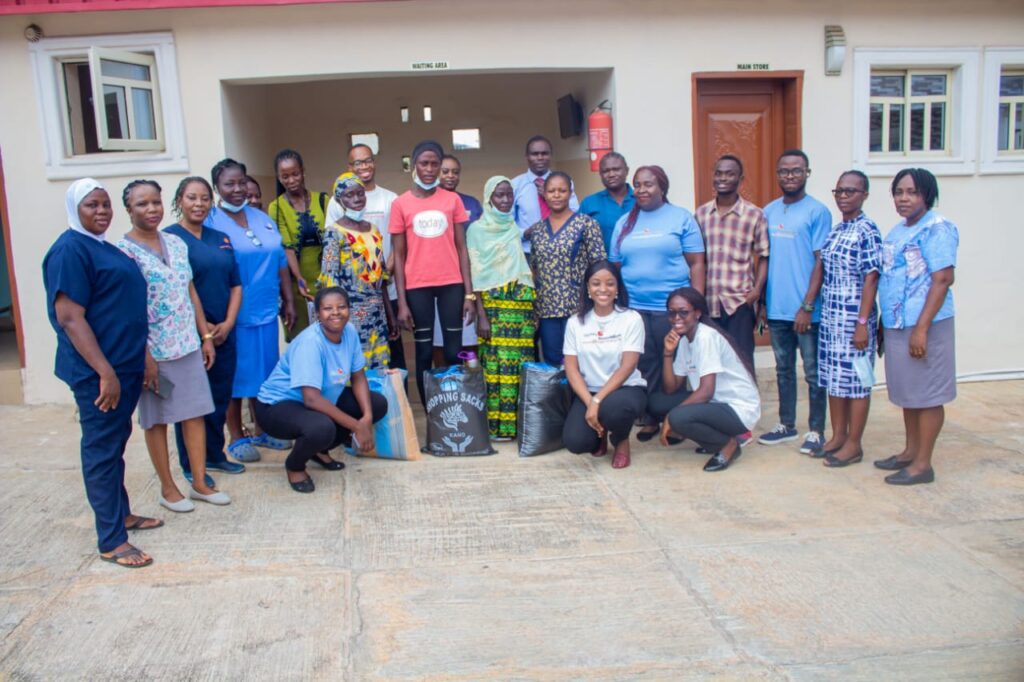
© Adeji Paul
The Damien Foundation is a non-profit organization based in Belgium that combats tuberculosis and leprosy. Friends of the Damien Foundation UI, is a student offshoot that aims to eradicate tuberculosis, leprosy, and other poverty-related infectious diseases through advocacy and social service within the University of Ibadan. Remarkably, the Damien Foundation built the new Genomics and Mycobacteria Research and training Centre situated at the 1B Crowther lane, University of Ibadan.
Friends of the Damien Foundation UI was established on September 14th, 2019, and it currently has about 70 members. Over the past year, the organization has carried out outreaches at Sango, Iberekodo, Akinyele abattoir, among others. They have also organized awareness campaigns within and outside UI via radio programs. They also donated cash gifts and food items to some of the outpatients in the disease-resistant tuberculosis treatment center opposite UCH.
Sharing with the press the challenges the organization is facing, Mr. Adeji Paul Promise, a 400-level medical student and Vice President of the organization, explained that since the organization is focused on leprosy and tuberculosis, it is not really engaging for students. “There is, however, an opportunity for students to learn about these diseases so that they can educate others and also provides an avenue for free TB testing,” he added. He suggested that the organization can improve by having a better relationship with its parent Organization—the Damien Foundation, Belgium.
The BloodDrive Network
The BloodDrive Network is a youth-led organization that aims to ensure regular blood donation by young, committed, healthy, and voluntary blood donors across Nigeria as a means to address patient mortality due to blood scarcity. It was founded in 2021 by Dr Okoro Chidinma Peace, a then 500-level student of Medicine and Surgery at the University of Ibadan. Since then, the organization has grown to over 200 members from the University of Ibadan.
Over the past year, the BloodDrive Network has produced two Film Documentaries narrating the importance of regular voluntary blood donation for critical care patients as a corporate social responsibility, with the second being co-opted by the National Blood Service Commission as an official media for awareness on voluntary blood donation. In December 2024, they collaborated with the Coalition of Blood for Africa across Uganda, Kenya, Nigeria, and Tanzania on a Trauma-Preparedness Festive blood drive. By partnering with a related Corporate Social Responsibility initiative, they achieved their 2024 target of at least 1000 blood pints voluntarily donated by youths, consequently birthing a major grant award by the Russian Federation and international recognition for social impact.
Dr Chidinma explained that the organization faces challenges such as limited funding, irregular donors, social and behavioral biases towards blood donation, and poor infrastructure for blood storage and distribution. She added that the organization is working to improve on obtaining adequate funding for blood donation projects; adopting technology to optimize blood storage and access in underserved communities; and advocating for policy reforms in support of blood donation and equitable access.
Remarkably, the BloodDrive Network has enabled students to carry out blood donation projects within the University of Ibadan, a notable example being “Project Lifestream”, which took place on November 22, 2024. It was led by Miss Daniella Obikunle, a 400-level medical student and member of the BloodDrive Network. The project saw the registration of 100 voluntary donors, who contributed to the collection of 81 pints of blood. Recently, on Children’s Day, May 31st, 2024, the BloodDrive Network executed another blood donation project for children suffering from sickle cell disease. Undoubtedly, the BloodDrive Network is an excellent platform for students who want to promote voluntary blood donation to help tackle blood shortages nationwide.

Mission:BRAIN; Ibadan
Mission:BRAIN, the BRAIN being short for “Bridging Resources for Advancing International Neuroscience”, is a global non-profit organization with a goal of providing neurosurgical expertise and resources to patients, caregivers, and healthcare providers in underserved regions worldwide. Its aims to link neurosurgeons and caregivers with hospitals and patients in need of neurosurgical treatment. The organization currently has 109 chapters spread across 27 countries, with Nigeria having two chapters: one in Ibadan and the other in Ilorin. These chapters are responsible for carrying out local outreaches, fundraising, recruitment, neurosurgical education, research, and more. Although the mother organization was found in 2010 in the United States, Mission:BRAIN, Ibadan was established in 2024, making it a relatively young organization. It is currently led by Jolly Thomas, a 400-level student of Medicine and Surgery, with about 30 members. Because the organization focuses on neuroscience, its members are predominantly medical students; however, interested individuals from all other disciplines are strongly encouraged to join.
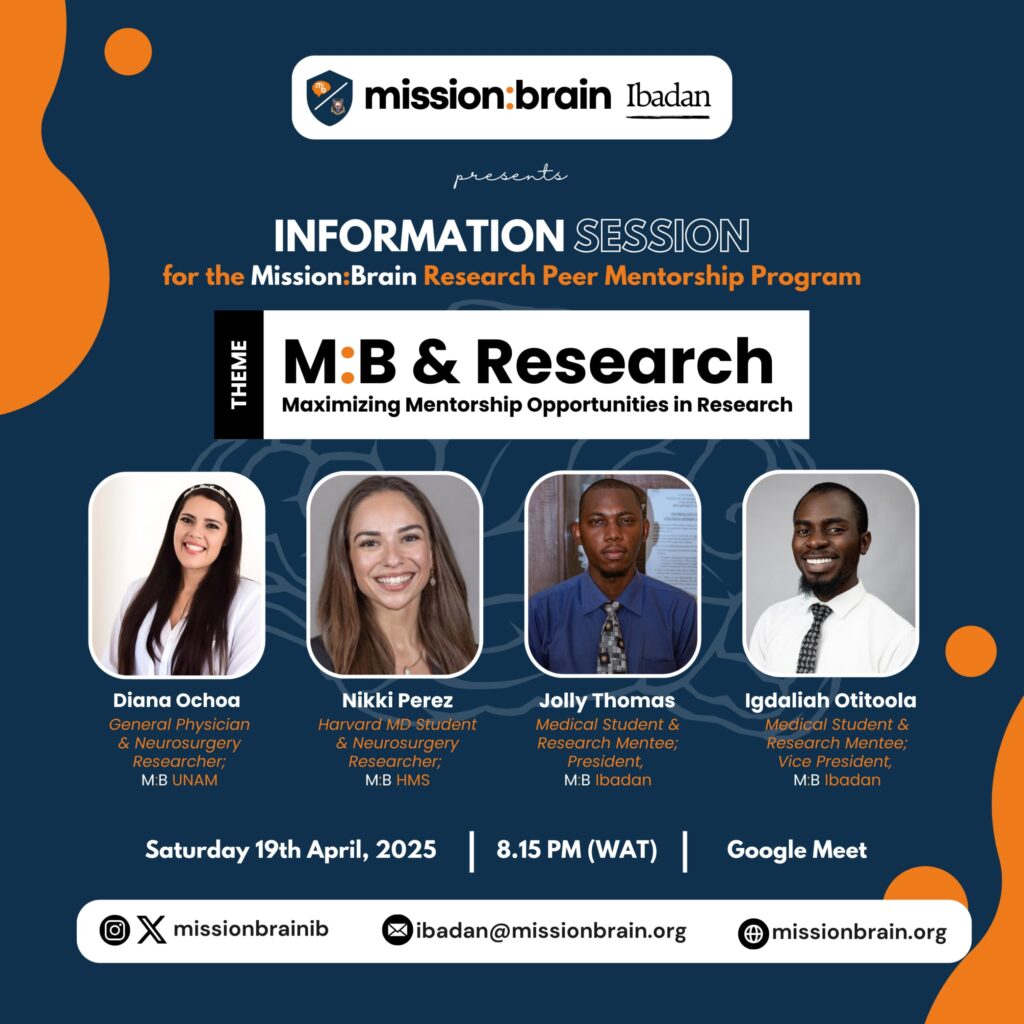
Speaking on the organization’s major activities in the past year, Mr. Igdaliah Otitoola, a 400-level student of Medicine and Surgery and Vice President of the organization, said they have supported members by providing research training, and leveraged the mother organization’s Peer Mentorship Program to expose our members to the fundamentals of research and connect them with leading professionals in the field across the world. They have also published articles and organised awareness campaigns on neurological disorders.
Mr. Igdaliah explained that the organisation faces challenges such as inactive members, unfamiliarity of students with the organisation, and the need for physical awareness campaigns. He suggested that the organisation can improve by expanding its reach and networking with more professionals who can not only provide an oversight function but also fulfil specific roles for the development and full establishment of the organisation on campus. Mission:BRAIN, Ibadan, provides a huge opportunity for neuro-enthusiasts.
Nigerian Red Cross Society, University of Ibadan Detachment
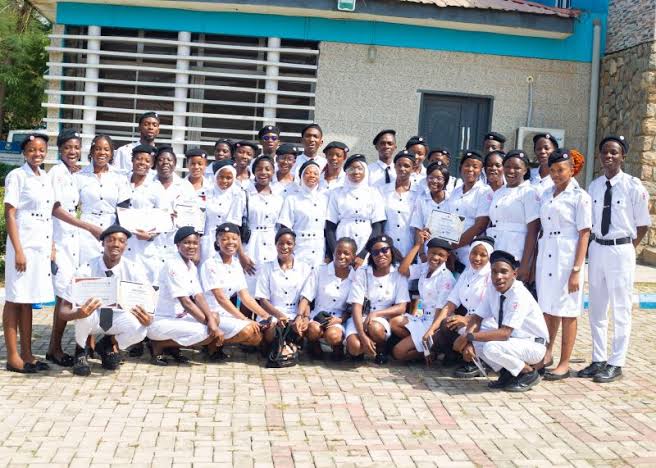
The Nigerian Red Cross Society is a non-profit organization that aims to alleviate the situation of vulnerable people, including those affected by disaster, epidemics, armed conflicts, displacement, and poverty. The hallmark of the organization is the provision of First Aid training to members and volunteers, equipping them to provide First Aid services when the need arises. Other activities include donation of relief items, emergency response, awareness campaigns, community outreach, and youth development. The University of Ibadan Detachment carries out these activities within the university community.
The Cardio Health, University of Ibadan Chapter
The Cardio Health is a health organisation aimed at combating cardiovascular diseases by promoting healthy living, creating awareness, and sensitising and educating people about everything relating to their heart. It has over 2000 members across over 32 chapters. The University of Ibadan Chapter carries out these activities within the university community by conducting webinars, organising outreaches, and disseminating information on heart health and nutrition through various social media platforms.
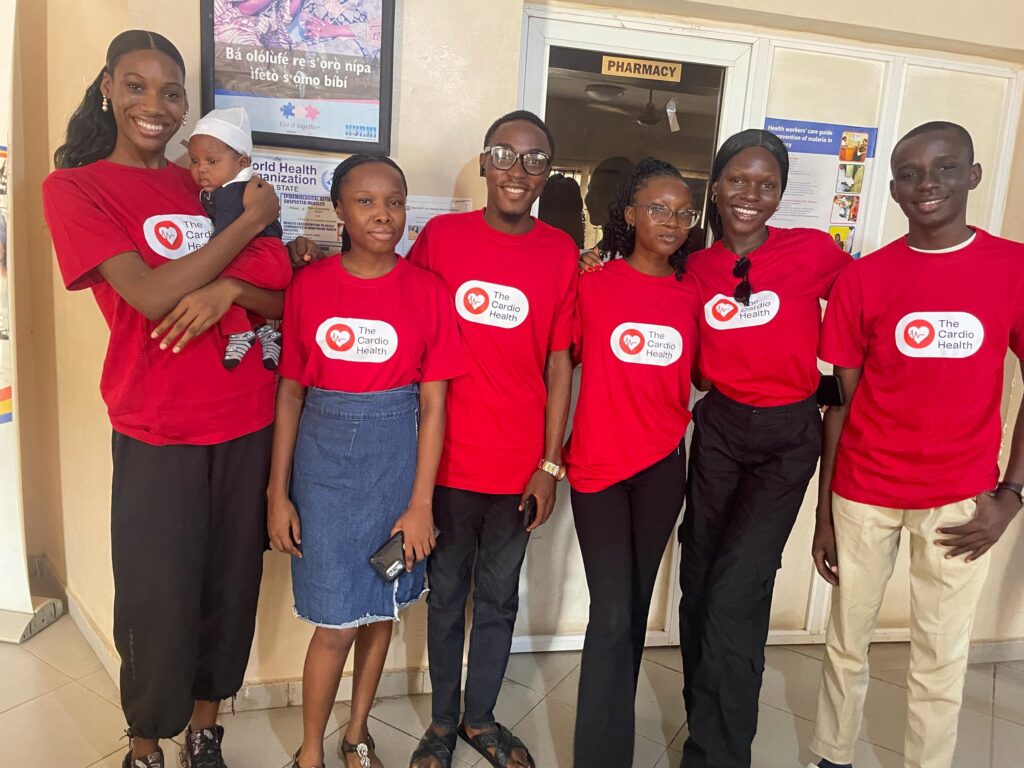
Conclusion
Student health organizations at the University of Ibadan are pivotal to ensuring a healthy university community because they help create awareness, provide basic health services, and foster leadership among students, from mental health advocacy with ACN UI to combating AMR with AMR Club UI, blood donation with the BloodDrive Network, tackling leprosy and tuberculosis with Friends of the Damien Foundation, First Aid services and emergency response with the Red Cross, and cardiovascular health with Cardio Health. Challenges such as inadequate funding, poor member participation, and operational inefficiencies can be overcome by strengthening internal structures, fostering better collaborations, and improving awareness strategies. Ultimately, therefore, student health organisations in UI are more like ‘moving trains’ than ‘rusty bicycles’ – impactful, yet requiring constant improvements to sustain momentum. With consistent efforts, these organisations have the potential to transform health and well-being both within and outside the University. Students should, as a necessity, embrace the opportunities they provide for growth and development.




